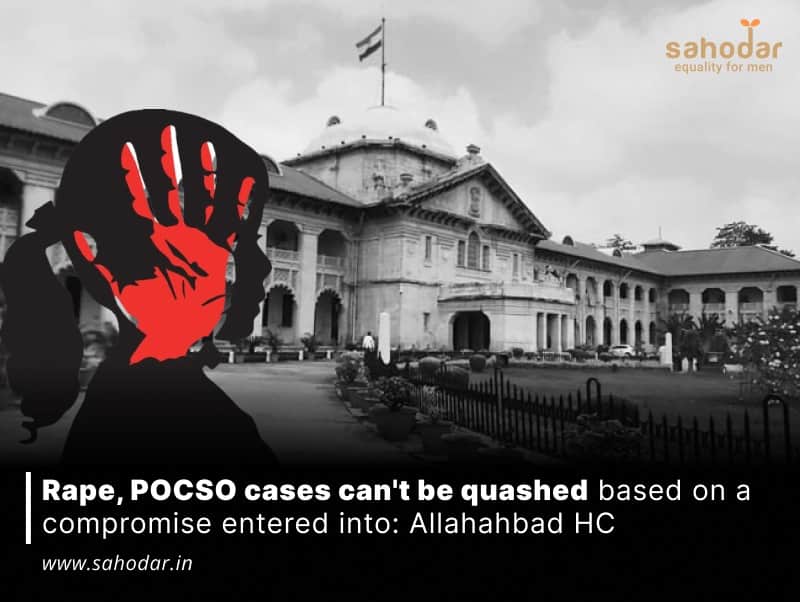The Allahabad High Court has ruled that it is not legally permissible to dismiss a rape case or a case under the Protection of Children from Sexual Offences (POCSO) Act based on a compromise between the accused and the victim. This decision was made when the court refused to dismiss a 9-year-old rape case, taking into account the earlier decision in the case of Om Prakash vs. State of U.P. and Another. The court also acknowledged that the issue of compromising a POCSO case between the accused and the victim is currently being examined by the Supreme Court in the case of Ramji Lal Bairwa and Another vs. State of Rajasthan and Another.
Three accused had approached the High Court seeking to dismiss a criminal case against them. The first accused faced charges under various sections of the Indian Penal Code (IPC) and the POCSO Act, while the second and third accused faced charges under Sections 504 and 506 IPC. They argued that the matter had been resolved through a compromise between the victim and the accused. They also claimed that the first accused had married the victim and that they were leading a happy married life. On this basis, they requested the court to quash the criminal proceedings against them.
However, the State strongly opposed this plea, stating that the POCSO Act was created by the legislature to safeguard and prevent harm to children, as defined in the act. The State also argued that a charge sheet had been filed against the accused in question.
Observation of the court
Initially, the Court noted that the authority to dismiss criminal proceedings should be used with extreme caution and only in exceptional circumstances. The Court also referenced the decision of the Supreme Court in Satish Kumar Jatav vs. State of U.P., where the apex court stated that criminal proceedings cannot be dismissed merely because they may appear to serve no purpose, especially if there is clear evidence of the alleged offences.
Additionally, the Court cited the ruling of the Supreme Court in Narinder Singh and others vs. State of Punjab and another (2014) 6 SCC 466, which stated that offences under Section 376 of the IPC cannot be considered private disputes between parties, even if they were committed against a particular victim.
The Court also took into account the Supreme Court’s decision in Daxaben vs State of Gujarat 2022 LiveLaw (SC) 642, where it was held that a case under Section 306 IPC and Section 376 IPC could not be dismissed on the basis of a settlement. In light of these established legal principles, the Court concluded that dismissing a case under Section 376 of the IPC and Sections 3/4 of the POCSO Act based on a compromise between the accused and the victim was not legally allowed.
Consequently, the application in question was dismissed.
Source: https://www.livelaw.in/news-updates/allahabad-high-court-legally-impermissible-quash-rape-pocso-act-cases-compromise-accused-victim-225785

